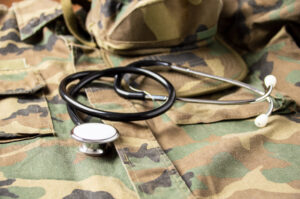
2024 Brings Changes for Military Physicians and PAs
(Alan Wooten, The Center Square) — For practicing physicians on North Carolina’s military bases, the new year brings change in state law that will provide help to them and those that can use their services.
Much of a broad bill passed in the General Assembly this year and signed by Democratic Gov. Roy Cooper on Sept. 29 went into effect immediately. A portion impacting relocating military members will be enacted Feb. 1.
North Carolina is home to six major military installations, chief among them Fort Liberty – the base formerly known as Fort Bragg and almost always recipient of any presidential “911 call.”
The Health & Human Services Workforce Act will allow “military relocation licenses for physician and physician assistant servicemembers and spouses.” The state board can issue a “military relocation license” to a “physician or physician assistant not otherwise actively licensed by the Board who meets” certain requirements.
Five criteria include being in the U.S. armed forces or a spouse of a service member; in North Carolina pursuant to military orders for military service; licensed in another jurisdiction with “substantially equivalent” or exceeding requirements of North Carolina; in good standing within that jurisdiction, with no disciplinary actions in the last five years or pending investigations by an occupational licensing board; and actively practicing medicine an average of 20 hours per week in the two years before relocating to North Carolina.
The Army’s Fort Liberty and Pope Air Force Base are in the southeastern part of the state; Seymour Johnson Air Force Base is in eastern North Carolina; and Marine Corps Air Station Camp Lejeune and MCAS New River are along the coast, not more than an hour’s drive from the more inland MCAS Cherry Point. Two Coast Guard bases are on the northern coast at Elizabeth City; and the Military Ocean Terminal Sunny Point is on the southern coast in Brunswick County.
Among other things within the legislation are statutes related to over-the-counter hearing aids; credentialing of behavior analysts; optometry laws; audiology laws; oversight of Nurse Aide 1 education; requirement of law enforcement officers in certain hospital emergency departments; punishment for assault convictions against certain personnel; Medicaid reimbursements for dental procedures in ambulatory centers; and an updated definition of a bar in the sanitation statutes.
